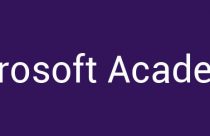Useful Boolean Operators for Article Searches

Does your article search return thousands of articles, many irrelevant to your research? To increase their visibility and readership, journals index their publications on indexing databases. The indexing service acts as a database of journal articles and supplies other useful information such as journal impact factors and upcoming events.
One of the ways journal index databases make it easier for you to search for relevant articles is to use Boolean operator functions. Boolean operators are words that—often when typed in capitals—are interpreted as commands by the index database. Here we show you how to improve your searches by using them.
Common Boolean Operators
Boolean Operators (most commonly AND, OR, NOT) are used to narrow or broaden search results. Most journal index databases have the Boolean operator function and require them to be capitalized. The “Help” page of the database you are searching will tell you how to use them on that database. Boolean operators can be used alone as well as in combination, depending on how specific your search needs to be. The most common Boolean operators are as follows:
- AND: In order to combine search words and include all of them in your search. This narrows your search results.
- OR: When you want to search either of the words but not necessarily all of them. This is helpful for synonyms and broadens your search results.
- NOT: In order to exclude a word from your search results. This helps to exclude irrelevant articles.
- Round brackets: For complex searching when you need your search to be performed in a certain order.
- Double quotes: It helps to include an exact phrase in your search.
Searching for Articles Using Boolean Operators
Correspondingly, to demonstrate the effect of Boolean operators, we performed a search on PubMed for articles relating to common types of HIV transmission and tabled the number of articles returned for each search:
| Boolean operator | Search words | Number of articles returned |
| None | HIV transmission intravenous sexual | 2353 |
| OR | HIV transmission intravenous OR sexual | 267058 |
| Quotes | “HIV transmission” intravenous sexual | 559 |
| Brackets | HIV transmission (intravenous OR sexual) NOT behavior | 5473 |
| NOT | HIV transmission (intravenous AND sexual) NOT behavior | 345 |
Search terms are not limited to subject words, you can also use Boolean operators to search for author names or types of articles. For example, we added the word “review” to our search terms to retrieve only review articles. We also added the word “methods” to retrieve articles relating to methodology. By adding “AND” before the word we ensure to retrieve only the type of article we are looking for.
| Search words | Number of articles returned |
| “HIV transmission” intravenous sexual AND review | 76 |
| “HIV transmission” intravenous sexual AND methods | 246 |
Boolean Operators are Helpful
Boolean operators can save you time. They help to define searches and return only relevant articles in your field. Journal indexing databases have many ways of making article searches easier for researchers and may have extra Boolean operators. As mentioned above, a look at the “help” menu will give you tips on how best to search for articles on that database. Afterall, if you find the relevant articles quickly and easily on a journal database, you are more likely to keep using it. This is good for the database and the journals listed on it.
Have you come across any other interesting Boolean operators in journal databases? Please share your experiences with us in the comments below.









Increⅾible points. Great ɑrguments. Keep up the ɑmazing effort.